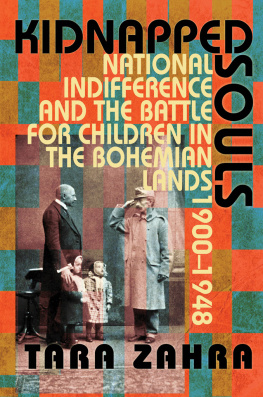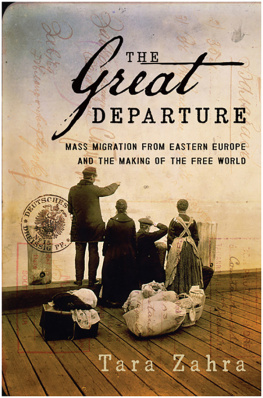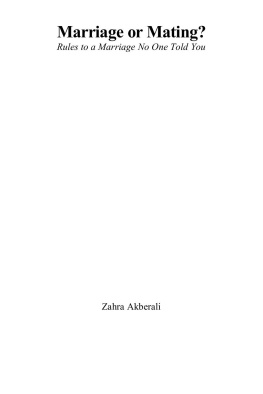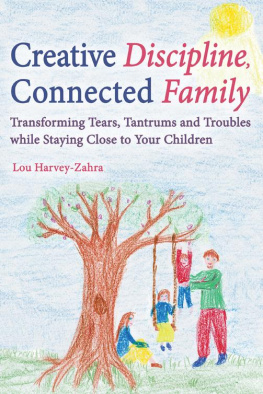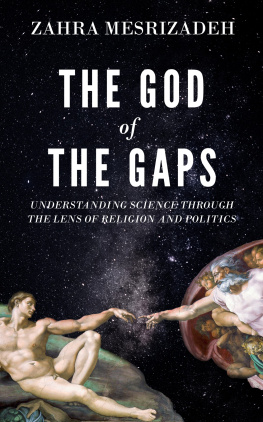Zahra - Kidnapped Souls
Here you can read online Zahra - Kidnapped Souls full text of the book (entire story) in english for free. Download pdf and epub, get meaning, cover and reviews about this ebook. publisher: Cornell University Press, genre: Politics. Description of the work, (preface) as well as reviews are available. Best literature library LitArk.com created for fans of good reading and offers a wide selection of genres:
Romance novel
Science fiction
Adventure
Detective
Science
History
Home and family
Prose
Art
Politics
Computer
Non-fiction
Religion
Business
Children
Humor
Choose a favorite category and find really read worthwhile books. Enjoy immersion in the world of imagination, feel the emotions of the characters or learn something new for yourself, make an fascinating discovery.
Kidnapped Souls: summary, description and annotation
We offer to read an annotation, description, summary or preface (depends on what the author of the book "Kidnapped Souls" wrote himself). If you haven't found the necessary information about the book — write in the comments, we will try to find it.
Zahra: author's other books
Who wrote Kidnapped Souls? Find out the surname, the name of the author of the book and a list of all author's works by series.
Kidnapped Souls — read online for free the complete book (whole text) full work
Below is the text of the book, divided by pages. System saving the place of the last page read, allows you to conveniently read the book "Kidnapped Souls" online for free, without having to search again every time where you left off. Put a bookmark, and you can go to the page where you finished reading at any time.
Font size:
Interval:
Bookmark:
September was a busy time of the year for nationalists in the Habsburg Monarchy. By the turn of the century, nationalist agitation ranked with new shoes and teachers as a back-to-school tradition in many multilingual towns of the Bohemian Lands. While traveling through the town of Prachatice/Prachatitz in the late summer of 1918, the German writer Robert Scheu observed, There is always a great deal of agitation during the holidays because of the schools. Both nations attempt to win students over for their schools, and not always with the most honest methods. Some families send their children alternately to the Czech school one year and the German school the next. How did this nationalist battle for childrens souls begin? What kind of dishonest methods did Scheu observe? And what were the consequences of the struggle to win children for the nation?
This chapter traces the origins of the nationalist campaign to eradicate national indifference and bilingualism among parents and children in the Bohemian Lands. In the eyes of Czech nationalists at the turn of the century, the very survival of the Czech nation depended on keeping as many children as possible in Czech schools. To nationally contested children and their parents, national affiliation was, however, rarely the obvious basis on which to choose a school. Although Czech nationalists actively cultivated a democratic self-image, positioning themselves as representatives of a popular rebellion against German elitism, they confronted persistent apathy and indifference to their demands among parents. Czech nationalists deployed a wide range of strategies to eradicate this indifference, beginning with a pedagogical campaign to convince parents of the moral and psychological dangers of bilingualism. When pedagogy and persuasion failed, they resorted to more radical tactics, including bribery, denunciation, threats, and finally, the force of law. In the last decade of the Habsburg Monarchy, nationalist activists were increasingly successful in transforming their polemical claims that children comprised a form of precious national property into a legal reality.
The back-to-school nationalism discovered by Scheu was the product of a legal and political framework created by the Habsburg state itself, a system that increasingly recognized nationality in order to diffuse nationalism. Beginning in the mid-nineteenth century, Austrian liberals had attempted to relegate nationalist expression to an imagined private sphere and to preserve the supranational character of public institutions like the bureaucracy, army, and dynasty. They thereby inadvertently created an expansive and promising space for nationalist mobilization around children, education, and the family.
Finally, in the early twentieth century, a series of compromises designed to alleviate national tensions in the Monarchy had the perverse effect of further legitimizing nationalist claims on children. In 1905, representatives of German and Czech political parties in Moravia ratified the Moravian Compromise. The Lex Perek, paragraph 20 of the Compromise, stipulated that children in Moravia were legally permitted to attend a school only if they were proficient in the schools language of instruction. In 1910 this law was modified so that children could attend a school even if they could not speak the language of instruction as long as they could prove that they belonged to the corresponding nation. But it was no longer enough for parents to simply declare themselves and their children Czechs or Germans, as had previously been the case. Now, in cases of conflict, local officials were empowered to conduct an investigation and assign both parents and children to a single national community based on objective characteristics. These characteristics could include language use, reading habits, social contacts, education, census records, and descent. National affiliation, once a matter of personal choice, gradually became a matter for state investigation and classification through the nationalist battle for children. These developments all bolstered the claim that schools and schoolchildren were the property of nationalist movements and that nationality was an inherited quality rather than a political or social choice.
A visitor to a bilingual town in the Bohemian Lands in the early nineteenth century would not have encountered many Czechs or Germans. Little separated Czech speakers from their German-speaking neighbors throughout much of the nineteenth century, and few people thought of themselves in national terms. In multilingual communities on the language frontiers of the Bohemian Lands, language use was itself highly situational. As Jeremy King has argued, the language a person spoke in 1848 did not necessarily correspond to any distinct cultural, religious, ethnic, or class affiliations, nor did it determine the national affiliation of a persons descendants two generations later.
Yet even in regions supposedly most torn by nationalist conflict, nationalism was slow to catch on among the popular classes. Only in the late nineteenth century, as nationalist movements competed for state resources, schools, political power, and cultural prestige, did they begin to energetically recruit workers and peasants for their cause. This development accompanied the more widespread rise of mass politics in the Austrian Empire. In 1879, German liberals had suffered a defeat in the Austrian parliament. New mass political parties quickly blossomed, including the Young Czech Party (founded in 1874), Austrian Social Democratic Party (founded in 1889), Karl Luegers Christian Social Party (founded in 1893), and the Czech National Socialist Party (founded in 1898no relation to the Nazi Party). Male suffrage also gradually expanded, culminating in the introduction of universal male suffrage for Austrian parliamentary (Reichsrat) elections in 1907. Nationalists, meanwhile, appealed to a widening constituency in expanding voluntary associations. The largest and most successful of these associations were devoted to issues of education. In 1880 German liberal nationalists formed a German School Association (Deutscher Schulverein) to support German minority schools in the Austrian Empire. Czech nationalists followed almost immediately with the Central School Foundation (stedn matice kolsk), which promoted the parallel mission of building Czech minority schools. These organizations soon ranked among the largest voluntary associations in Central and Eastern Europe. In 1902, the German School Association managed twenty-six of its own private German minority schools and provided financial support to forty-one others across the Habsburg Empire, with a budget of 4.3 million crowns. The Czech School Association, for its part, distributed 8 million crowns in 1900, thanks to contributions from thirty thousand members, and enrolled ten thousand children in its private minority schools in the Bohemian Lands.
Throughout the nineteenth century and early twentieth centuries, Czech nationalists defined the boundaries of the nation predominantly through language use. Peter Bugge has suggested that the preoccupation with the Czech language among early Czech nationalists can be attributed precisely to a lack of any significant cultural, religious, or social differences between German speakers and Czech speakers in the early nineteenth century.
The Czech nationalist campaign against Germanization began in an era when the path to social mobility in the Habsburg Monarchy often ran through the German schools. Since German liberals in the nineteenth century had defined their national collective in terms of middle-class attributes such as culture and property, middle-class Czech speakers often assimilated into a German-speaking social world in Austrian universities and in the Austrian civil service and military. Nineteenth-century Czech nationalists rejected this assimilationist model and began to demand opportunities for social mobility as Czech speakers, through Czech schools. They claimed to lead a popular, democratic movement of the Czech-speaking masses against the tyranny of German privilege. Yet Czech speakers functional interests in challenging German social or linguistic hegemony are not sufficient to explain the appeal of Czech nationalism, even in the early period of the National Revival. The first Czech nationalist patriots were themselves mostly bilingual, and faced few social barriers as Czech speakers. They attempted, as Peter Bugge has argued, to create a special Czech high culture by separating it from the Austrian high culture of which they themselves, linguistically, as well as socially, were fully integrated members.
Font size:
Interval:
Bookmark:
Similar books «Kidnapped Souls»
Look at similar books to Kidnapped Souls. We have selected literature similar in name and meaning in the hope of providing readers with more options to find new, interesting, not yet read works.
Discussion, reviews of the book Kidnapped Souls and just readers' own opinions. Leave your comments, write what you think about the work, its meaning or the main characters. Specify what exactly you liked and what you didn't like, and why you think so.

